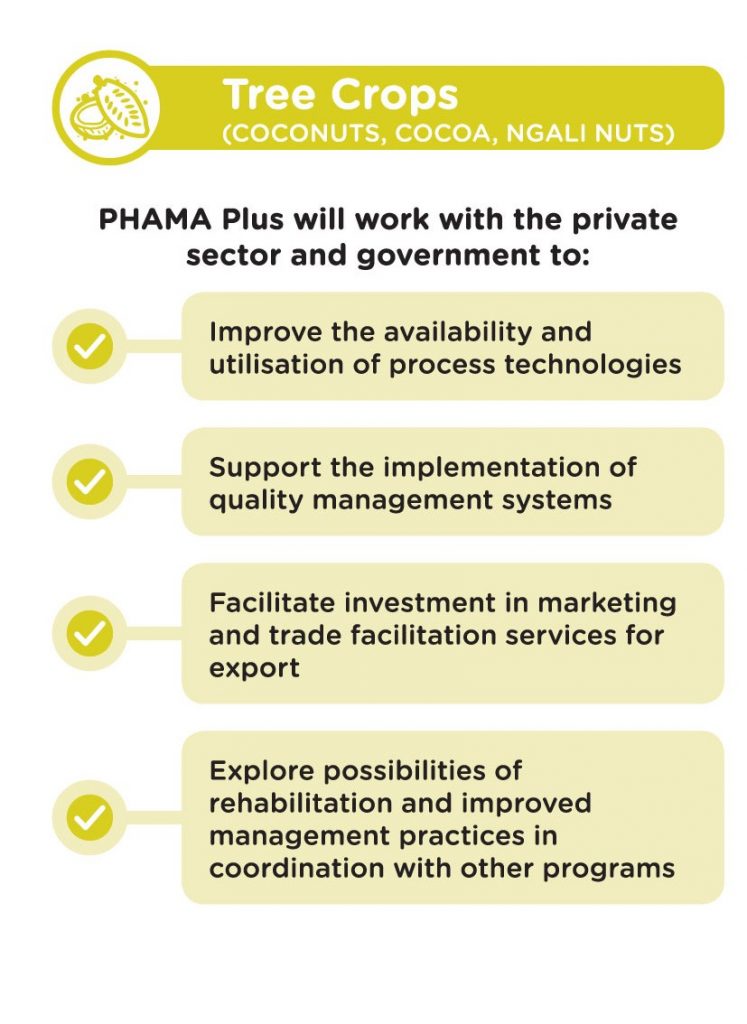Tree Crops

The tree crops sector encompasses a large proportion of agricultural production and trade in the Solomon Islands and is central to many livelihoods and rural economies. Cocoa and coconut are two of the largest agricultural exports for Solomon Islands and an important component of most rural livelihoods in the country.
These commodities collectively represent a large proportion of export trade in agricultural goods and are a significant source of livelihood and employment. Nearly 40,000 rural households are involved in the coconut value chain for own consumption and sale; approximately 24,000 smallholders are involved in cocoa production. Many rural households produce two or more of these commodities.
The great majority of Solomon Islands cocoa and coconut products are exported into global commodity markets as un-differentiated raw commodities, generally at the lower end of prevailing world prices due to quality issues. However, in recent years cocoa, coconut and ngali exporters have significantly increased their capacity, with support from the PHAMA Plus program. The two commodities have increased in sophistication and are at a key turning point in improving returns for commodity exports as well as accessing new markets such as processed foods for domestic consumption and export, and differentiated/speciality products including also certified organic products.
Cocoa: PHAMA Plus’s vision for the Solomon Islands’ cocoa sector is to see increased volume of cocoa and greater production of differentiated and single origin cocoa achieving price premiums as a result of improved quality and diversified markets, in order to achieve higher sales revenue.
Coconuts: the vision for the coconut sector is for a viable and resilient coconut sector where the whole value chain works effectively, where there are a range of products and industries that draw on the coconut plantation resource.
Overall, PHAMA Plus’s vision for the Solomon Islands tree crops sector is to expand production and improve quality to achieve higher prices in bulk commodity markets, and at the same time develop niche export markets for differentiated and speciality product lines.


